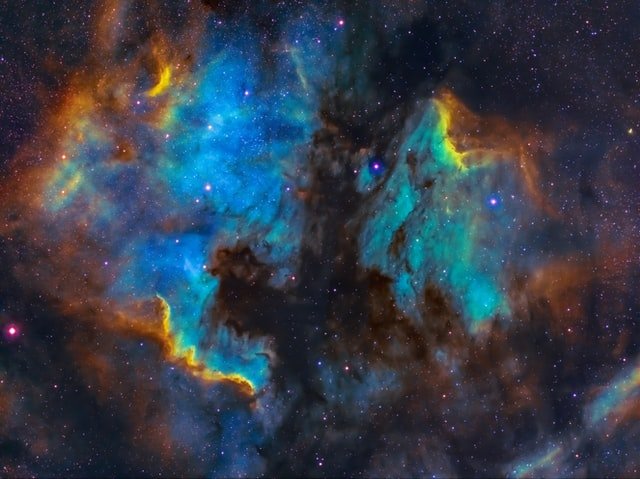Fiction Deep Dive: Don't Look Up - Is Humanity Worth Saving?
Written by Daniel MacGregor
Thumbnail Photo by Chris Henry on Unsplash
Warning: This article contains spoilers for the Netflix film, Don’t Look Up.
This article is not a review of the latest Netflix film, Don't Look Up, a loose analogy to the contemporary response to climate change through the lens of an extinction-level comet on a collision course with Earth, though a quick summary is due. It depicts a humanity that for the most part is not able to save itself because of inherent flaws; however, this article will be a look at the stories that had the opposite answer to the question of whether humanity is worth saving.
The Netflix film Don't Look Up follows the simple formula of a duo of astronomers discovering a comet that will hit the Earth in six months in an extinction-level event. However, unlike other films in the big-rock-going-to-hit-the-Earth genre, this movie is an analogy for addressing the climate crisis. As a wake-up to the climate crisis, spoiler alert, all efforts to stop the comet fail because of government stupidity, misinformation, and mega-corporation greed.
While a dip in cold water to shock the systems of climate change deniers and the apathetic can be helpful, it can also leave a sour taste in one's mouth. The reaction and reviews reflect a divided opinion on the movie, with the movie having a 56% rating by critics on Rotten Tomatoes contrasted with a seal of approval from some climate scientists. This division is ironic considering the film's commentary on pointless division on survival-level issues.
Photo by Aldebaran S on Unsplash
Though the film's pessimistic ending kind of hints at humanity not being worth saving, as it is full of trolls, short-sighted politicians, and self-absorbed tech CEOs, these groups drag down the best efforts of an outspoken minority. Unfortunately, this shock treatment is used frequently, and what is needed is a sense of hope and the potential for a better future despite the flaws of human nature, not just the likelihood of disaster.
In opposition to Don’t Look Up is a familiar trope in fiction when dealing with the value of humanity and whether it is worth saving. This type of story follows a cast of morally grey main characters, who begin the story trying to live their ordinary lives but ultimately end up fighting a world-/human-ending threat born from the sins of humanity with the help of a usually equally morally grey segment of society. In the end, the day is saved for the good of humanity despite its bad. This trope can be seen in Levithan Falls (the last book in The Expanse series), Bloody Rose (the second book in The Band series), and Space Sweepers (Korean sci-fi space thriller).
Levithan Falls by James S.A. Corey:
Two days before watching Don't Look Up, this contributor finished reading The Expanse series. This is a series where the discovery of the ruins of an ancient civilization, complete with portals connecting to thousands of new star systems to colonize, though instead of properly addressing this major issue, humanity is too busy constantly squabbling between different groups and factions. In book one, an independent Mars and Earth are at each other's throats with shadowy corporations in the mix, overshadowing the discovery of an alien substance that hijacks living matter. In book two, this threat is constructing what later turns out to be an intra-galactic portal on the surface of Venus. Though this is overshadowed by a corporation trying to weaponize the substance into living super weapons, all while Mars and Earth engage in open warfare. This flawed nature is not an issue only present in the macro-sense, but also within the individual members of humanity. For example, the main characters are also flawed, as with mechanic Amos, a former Earth thug, who is the go-to when something needs killing.
Finally, after nine books, the final battle takes place between a loose alliance of resistance fighters and Laconian imperial ships (long story) on one side. On the other side is the former leader of the Laconian Empire, who tries to turn society into a hive mind controlled by him to fight extra-universal beings who killed the former galaxy-spanning hive mind. In the end, the emperor is killed. When connected to the hive mind, the captain of The Rocinante, James Holden, crying at the potential of the hive mind option, decides to sacrifice himself to save humanity by destroying the portals forever and leaving thousands of solar systems disconnected and destined to start again. Thus, despite nine books worth of humanity making mistake after mistake, at the last moment it is able to come together in order to avoid becoming a hive mind, and in the end after a thousand years one of the separated solar systems manages to get back to Earth.
Bloody Rose (by Nicholas Eames):
Now we move onto the world of fantasy; Bloody Rose follows the mercenary band "Fable" and new member/bard Tam Hashford who begins the tale fighting monsters in arenas (and to extinction). In this story, the characters and humanity overall are deeply flawed, as Tam herself struggles to balance her role as Fable’s bard (medieval equivalent of a hype person) and actively fighting monsters. Moreover, Fable’s desire for fame and monster killing gives the main villain the key they need to acquire a giant monster for their resurrected undead army to get their revenge on humanity. The end battle is an army of resurrected mercenaries and monsters facing off against a loose alliance of mercenaries, crime lords, loner wizards, and warlords. Despite humanity's flaws, it can pull together long enough to overcome its flaws and defeat a world-ending threat with the sacrifice of Bloody Rose.
Photo by John Fowler on Unsplash
Space Sweepers (directed by Jo Sung-hee):
Returning to science fiction, in this world, Earth is severely polluted. At the same time, a small class lives in space as citizens of a mega-corporation who is terraforming Mars instead of saving Earth. We follow the crew of the Victory, a space sweeper ship that collects space debris to be sold for profit by those earth citizens able to get to space. The plot quickly moves from the crew of disgraced scientists and soliders, gang members, and war robots salvaging junk, to trying to save an orbital station from being destroyed and dropped on Earth by the mega-corporation’s CEO because of his experience with a past genocide creating a disdain for Earth. In the final battle, as the crew tries to take a bomb away from the station, pursued by drones, their saving grace is a motley fleet of space sweepers who can use their experience of plucking space junk from its orbit to destroy hostile drones.
Conclusion
Despite humanity's flaws in all three examples, humanity is saved due to the alliance of disparate portions fighting a common world ending threat, ending with an ultimate sacrifice of a number of the main characters (not to mention deaths of countless unnamed characters). In Don't Look Up, some people try to do good, but ultimately the world is destroyed in fiction to send a message to reality. Granted, in the three examples provided, the solution is a big final battle, but the real point is that they are stories where despite the giant flaws in humanity and the characters in those worlds, they are able to pull through with a bit of hope and cooperation. What is needed are alternatives, tales such as the examples provided where elements of humanity from all across the spectrum come together in a time of crisis, rather than torpedoing an entire story for the sake of sending a critique on humanity’s ultimate doom. Because it takes more than just knowing that the old world is dying, we also need to learn that a new world is possible.


